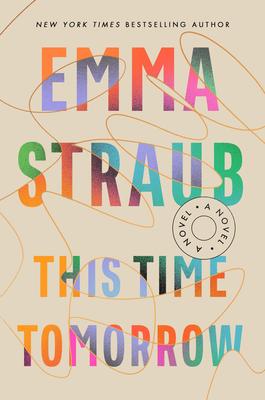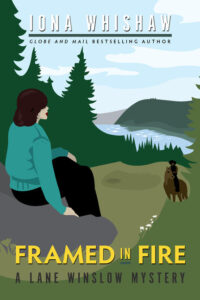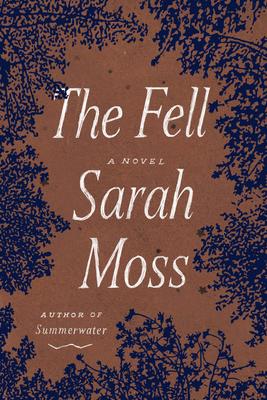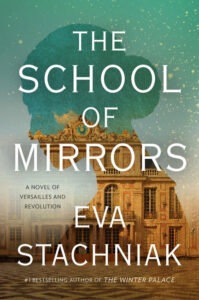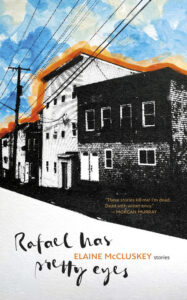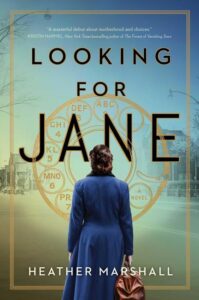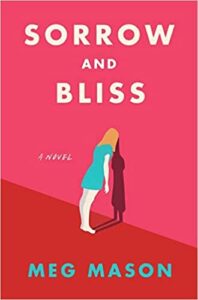June 6, 2022
This Time Tomorrow, by Emma Straub
Is novelist Emma Straub overhyped, I wondered, as I pre-ordered her latest novel This Time Tomorrow? And if indeed this is the case, am I part of the problem, pre-ordering her latest novel when the truth is her previous book didn’t really blow me away? I was a big fan of The Vacationers many years ago, and I’ve enjoyed her releases well enough since, but I was kind of resigned to This Time Tomorrow being something of a let-down, as are too many buzzed-about new releases. But oh, I’m so glad I didn’t miss this one, because it’s one of the best books I’ve read so far this year.
Though it matters, I think, that I’m something of a time travel fiend. Tom’s Midnight Garden, Charlotte Sometimes, and A Handful of Time are some of my favourite novels from childhood, and Straub’s references to movies like Back to the Future and Peggy Sue Got Married were absolutely delectable to encounter. It matters too that this is a time travel novel wholly self-aware of its genre and its place in the canon. In this case, it’s personal—protagonist Alice Stern’s father is author of the iconic novel Time Brothers, a time travel cult classic.
When the novel begins, Alice’s father Leonard is dying, silent and still in his hospital bed. Alice herself is on the eve of her 40th birthday, still living in the New York City she grew up in, still working in the same Manhattan private school she’d been a student at. She likes her life well enough, but her father’s condition and her milestone birthday are inspiring her to take stock and wonder how they got there and what else could have been
The novel features amazing Russian Doll vibes—after visiting a bar called Matryoshka, Alice wakes up in her teenage body, and proceeds to relive her birthday again and again, each time returning to the present to find her life very different due to choices she’d made. And while being trapped in a time loop might seem like a problem, to Alice it’s an opportunity to spend time with the father whose humanness and availability she’d always taken for granted when she was young. As one does.
What I love about this book is that almost none of the story was taken up by Alice trying to hide her situation from those around her. No, like any reasonable human, Alice takes advantage of her best friend’s intelligence and her father’s expertise in the area to loop them in and ask for help, so that the story becomes one about bigger questions, about the connections between generations, about the choices we make, and why they matter (or don’t!), plus a wonderful exercise in ’90s nostalgia.
It was smart, warm, and so delightful.
June 1, 2022
This is How We Love, by Lisa Moore
You wouldn’t say that Lisa Moore’s new novel This is How We Love is unputdownable, but I honestly think that’s a lot to ask of a novel . It took me almost a whole week to read it, because it’s kind of long, and I had a lot going on, so I kept picking it up and setting it down again, and the narrative style was doing something similar. The novel far less taut than you’d think for a plot with the stakes of a critical stab wound, an ICU, and a once-in-a-century snowstorm that brings St. John’s to a halt before it buries it under. But taut plots aren’t really what Lisa Moore is all about anyway. Or at least I don’t think so—nine years ago I read the first half of her novel Caught, which of all of them might be a contender for taut, while in labour in the bathtub, and afterwards I had strong aversion to ever reading the rest of it. From the rest of her novels, however, I know she’s all about the sentence, one word after another and how they all flow like waves, but they’re pushing us out to sea instead of drawing us to shore the way that actual waves do. Until we’re stranded on an inflatable raft like Trinity Brophy was before the authorities removed her from her mother’s care and delivered her to live with Mary Mahoney, the foster mother who raised her across the street from Jules’ house.
I wouldn’t say that Lisa Moore’s new novel This is How We Love is unputdownable, but I can say that over a week since I finished reading, I can’t get the story out of my head. About Jules, whose son Xavier is stabbed while she’s on vacation in Mexico and there’s only one seat on the first flight back so she takes it, arriving just as St. John’s is shut down entirely. So she’s there to deal with the peril of Xavier’s condition, and then all the snow, which falls and falls so the doors are blocked, except the back door, but it’s only because there’s been so much snow that the deck fell off the house.
The story moves between Jules’ point of view—her perspective on what’s happening to her son and reflections back in time too, to her mother and mother in law, to the early days of her marriage, her experiences as a mother, a stepmother. This is a book about care, about who we care for and who we don’t, and how some people belong to us, and other people don’t, and what happens to everyone when those people fall through the cracks—and those of Xavier himself, and Trinity Brophy, his childhood playmate who is somehow connected to what happened to him. Moore weaving so many different narrative threads together to begin to answer the question that’s mostly preoccupying Jules, which is WHY? Why did somebody hurt her son? Why would anybody want to do something like that?
Spanning decades and families, This is How We Love underlines the infinite ways in which lives are all connected. Part novel, part guidebook to the wondrous challenges of being a being.
May 9, 2022
Cambium Blue, by Maureen Brownlee
Oh my gosh, I loved Maureen Brownlee’s Cambium Blue from its first pages, with characters so vivid, sympathetic and familiar that I felt like I was watching a small town TV drama and the story’s spell was never broken. The story moving between the perspectives of Stevie, single mom turned newspaper reporter; her eccentric neighbour Nash, a veteran of the Spanish Civil War; and Maggie, the community newspaper publisher trying to decide whether or not to carry on with her flagging business after the death of her husband. It’s 1995 and changes are already afoot in the rural British Columbia town of Beauty Creek, ever since the sawmill closed down, which has locals are struggling, plus a beetle infestation is threatening the area’s most valued resource and local politicians are determined to add polish and red tape to the way things things have always been done.
A smooth-talking businessman is promising fortune in the form of a luxury resort, but not everybody is convinced he has town’s best interests in mind. Similarly controversial is a crackdown on Nash’s yard full of things he’s scavenged from the town dump, which has Stevie coming to his defence once they’ve developed a prickly connection when she dares to interview him about his history for the paper, but Stevie’s never been an advocate for anybody before, a teen mom who never finished high school, though Maggie sees something in her and has given her a chance to prove herself, the kind of chance Maggie herself might have appreciated once upon a time before her promise had been overwhelmed by that of her husband.
Cambium Blue is a novel about community, and change, its necessity sometimes and other times one must rail against it. It’s also a beautiful ode to community newspapers, situated at a moment just before the advent of the internet made the business seem impossible—though some of defied the odds. (Brownlee’s biography mentions her ten years spent as “variously publisher, editor, reporter, photographer, graphic designer and janitor for a weekly community newspaper.”) There’s a certain amount of small town dynamics that make the story especially compelling, but there’s nothing tawdry about this, Brownlee permitting each of her characters such a fierce dignity and inspiring sense of self that makes the story so alive. Such characterization, along with beautiful prose, resulting in novel that really sings, and reading it was moving, and such a pleasure.
May 4, 2022
New Lane Winslow: Framed in Fire
Being ill last week was not without its advantages, among them: a chance to spend an entire Friday in bed reading the new Lane Winslow. Framed in Fire is the ninth title in this detective series set in and around Nelson, BC, in the late 1940s, and throughout the series, author Iona Whishaw has performed the remarkable feat of tying her plots to so many issues relevant to our present-day experience—racism, xenophobia, domestic violence, rape, ideas about women’s independence, and more. And I suppose it shouldn’t be so remarkable to find such stories in historical fiction, these issues being—unfortunately—timeless. But that Whishaw manages to address them without anachronism is what’s really impressive. And while I’ll admit there might be something just a little too good about the people of King’s Cove—the murderers and dead bodies among them notwithstanding—I am not sure such enlightenment is entirely anachronistic either. Because as much as we excuse egregious deeds and ideas of past figures for being “of their time,” it’s also true that there were always people who knew that all people were deserving of rights, that colonialism was barbaric, the women were people. In Framed By Fire, Lane encounters an Indigenous person for the first time since her arrival in Canada, and has her preconceptions challenged that First Peoples were thoroughly of the past. And while other characters do reinforce the racist and colonial mindsets reflective of the population at large, that Whishaw writes others who challenge such ideas is smart and subversive, and why these stories read as so fresh and fascinating.
April 25, 2022
The Fell, by Sarah Moss
I am besotted with Sarah Moss’s slim and haunting stories, beginning with Ghost Wall, and then Summerwater, and now, her latest, The Fell, which I read on our plane journey home from England. (Interestingly, the one book I’ve read by her that wasn’t slim [Signs for Lost Children]) I didn’t like at all.)
Our plane journey home from England took place one year from the day that my husband and I received our first Covid vaccines, and while things since that day have not unfolded as neatly as we would have hoped, to have this long-awaited journey finally happening seems like the most fitting anniversary, and I just feel so tremendously lucky.
I think it’s easy to forget how many lifetimes have been contained within the last two-and-half years, so many plot twists, so many steps forward and two steps back. The idea of the pandemic is like an ever-looming dark cloud overhead, even though the reality of the experience has been much more textured, layered, unfolding, and even interesting. Interesting especially because the lack of certainty has been unmooring in fascinating ways, even while people stand resolute in their respective camps. (Whatever news sources you read, whatever your beliefs about vaccines–it’s all a story you’ve been writing alongside other people you trust about what this thing is and how it should shape our lives (or not). And in many ways, The Coronavirus has become a host story for a million other parasitic stories–our politics, our most intimate tensions, our economic ideas, our religious values, our parental aspirations. What a heavy frickin’ story, y’all. What a weight.)
Something that has helped me a lot in the last two years has been paying attention to the ways that life goes on in other places where Covid responses were different from ours here in Ontario—a former classmate in Shanghai, friends in New York City, my sister in Alberta, my husband’s family in the UK. The awareness (which I’ve written about before) that there really hasn’t been a way to get it right, that a virus is a formidable foe, and that most of us are just muddling through and doing our best under leadership that’s not necessarily nefarious (Boris Johnson’s lockdown birthday parties, notwithstanding).
It was interesting to be in England last week, which has decided to be finished with Covid altogether, where every fourth person we passed on the street had a hacking cough. I don’t think that doing away with Covid restrictions altogether is the right thing to do, but I also don’t really know what the right thing to do is, and I know we’re a public who has definitely lost our appetite for extreme lockdown measures. (Also, my youngest child testing positive for Covid yesterday, and her symptoms were a few hours of a low-grade fever and a runny nose, all of which have dissipated, and the rest of us continue to test negative, be symptom-free, FINGERS CROSSED. Hooray for vaccines.)
The Fell took me back to a different time though, when the skies were emptied of planes and the jury was still out on washing your bananas with Lysol. It’s November 2020, and Kate—single mother, waitress on furlough—has been quarantining at home with her teenage son after a Covid exposure, and suddenly decides that she can’t take it any more. And so off she goes on a walk on the fells near her home in the Peak District, strictly against the rules, even though the chances of her running into anybody else are nil. The trouble arises when she doesn’t come home.
Do you remember being irate about the idea of people leaving the house more than once a day for exercise? I sure do! Considering perhaps that even that was excessive? The sheer irresponsibility of young people gathering with their friends in the park!?!? An adherence to “rules” instead of any kind of pragmatism. In April 2020, I ordered a bouquet of flowers from a local business because somebody in my Facebook feed was squawking that any kind of “unessential” purchase was putting lives at risk, and I needed to defy her. Sometimes I was furious at the scofflaws, sometimes I was doing the scofflawing myself. All of it was so annoying, and much of it continues to be so.
The Fell is told from the perspectives of Kate, her son Matt, her elderly neighbour Alice (who’s had cancer, and therefore is considered vulnerable, in need of protection, and thus abandoned to her own company), and Rob, who works in Mountain Rescue and is called upon to look for Kate when her son reports her missing.
So much of the arguments against lockdowns and Covid government regulation has been so terribly idiotic that we’ve been deprived of the opportunity for proper reflection on what these responses have been. On what has indeed been their fall-out, the depravity. I think of elderly people left alone in care homes for months at a time. Of the mental health toll. Looking back, the fact that children in Ontario had to isolate for ten days each time they were exposed to Covid via a classmate seems needlessly excessive. The fact that small retail shops were closed for months in 2021, undermining faith in public health measures in such a dangerous way. It’s all be a lot of not great.
And yet the number of people whose response to this madness was supporting wannabe fascists?
It’s enough to make one’s head explode.
The Fell, however, is in lieu of that. A novel about risks and consequences, about community and isolation, about what it really means to protect each other, to save each other. About the risks of life itself, and what it means to take those risks, and unlike so much of the current discourse, it doesn’t offer easy answers. There are no easy answers, but asking the questions is the point.
March 28, 2022
The School of Mirrors, by Eva Stachniak
Last week, I read the same novel all week long, a novel set in 18th century France, no less, neither of which is my usual speed, but my friend Eva Stachniak is such a magnificent author that it was only a pleasure spending time with her latest, The School of Mirrors.
The story begins with Veronique, a young girl taken from her destitute family to be trained as courtesan to a Polish Count. But it turns out that the Count is actually the King of France, the girls discarded when he tires of them, all of this orchestrated by the King’s mistress and a network of other figures at Versailles.
Young Veronique soon becomes pregnant, and is taken away to give birth in secret, her child taken from her, and Marie-Louise overcomes a lonely and difficult childhood to study midwifery and pursue one of the vocations available for women. As with the girls of Deer Park, from whom Veronique’s story is imagined, the story of these midwives is taken from life.
By the dawn of the French Revolution, Marie-Louise is married to a radical lawyer pushing to make France into a Republic, and she keeps quiet about the story of her own origins, which she knows so little of anyway. But as the politics of the moment grow more and more intense, the consequences of Marie-Louise’s ties of Versailles become much more fraught. When she finally reconnects with her mother, who is poor and suffering from dementia after such a difficult life, the list of secrets she’s having to keep is growing ever longer.
“‘The present circumstances’ were growing worse. Hortense would come home from the market furious. There was no spring lettuce. Leeks had vanished. Vendors pushed wiltered carrots on her and when she protested told her not to be too picky if she wished to be served at all. Her regular cheese merchant tried to charge her almost double what he charged last week so she had to go elsewhere. Bread had gone up in price again. People said it was because of vagrants, though what vagrants could have to do with the disappearance of leeks or the price of bread was still a mystery. Try saying that at the market though. You get spat on. Or pushed into the mud. A young fellow got beaten up because a fishmonger called him a king’s spy. No one minded their own business anymore. Everyone had an opinion to defend. The more outrageous the better. People no longer talked, but yelled. Where was it all heading? Where would it end?”
The School of Mirrors
I wondered, upon reflecting on this book, if it’s not a case of “history repeating” as much as “this is how it always is.” The instability, drive for revolution and change, and also appetite for war, and how while women are never the drivers of any of this, they’re the ones left to pick up the pieces, to keep things going, to put food on the table, delivering the babies, delivering the future, birth and death being their business, always.
Stachniak’s writing is wonderful, the characters gorgeously rendered, and the era brought to life in terrific fashion. The School of Mirrors is an excellent read, providing fascinating insight into the experiences of women and their proximity to power, and meaningful connections to right now.
March 21, 2022
Rafael Has Pretty Eyes, by Elaine McCluskey
No one writes voice quite like Elaine McCluskey, and not just one voice, but all the voices, ranging from the news reporter just laid off after twenty-five years, to the canine companion of man whose brain damage to the front cortex has caused an unfortunate condition termed Witzelsucht, a bouncer with concussion symptoms, or the man whose story begins, “I am at a Toast ‘n’ Roast for my mother’s fourth husband, Wayne. Wayne, of course, is a dud. Who else do you get on the fourth attempt: Idris Elba?” And later on in the same story, “It’s Never What You Think It Is,” which opens McCluskey’s latest collection Rafael Has Pretty Eyes, the character notes that he’s convinced “that life is one inside joke after another and that people fall into two categories: the people who believe Trailer Park Boys is real and the ones who don’t, and I no longer know where I fit because last night I saw Bubbles driving a Masterati Quattraporte with smoked windows on the Waverley Road in Dartmouth and it seemed quite normal to me.”
I have loved Elaine McCluskey’s work for ten years now, as a search through my blog archives proves, ever since I first read her debut collection The Watermelon Social, and got hooked on this writer who, with a single sentence, can break my heart and make me laugh until I cry all at once. She writes about oddballs with such a remarkable immediacy that they’re relatable, and with such incredible specificity too (“a Masterati Quattraporte with smoked windows on the Waverley Road in Dartmouth,” for example) that she blows my mind with her acuity.
(Upon reading her latest, it also occurs to me that I love McCluskey’s work for the same reason I love Katherine Heiny’s, which might be the highest literary compliment I’m capable of giving.)
McCluskey writes about people who’ve fallen through the cracks, people who are hanging on just barely, suffering evictions, breakups, or being held hostage at gunpoint. The extraordinary side of ordinary—the radio DJ who’s come down in the world and makes his living now at a pay day loan outlet, the local city councillor for whom it’s all about to fall apart. Characters who seem like anybody you might pass on the street, rendered vivid by the power of McCluskey’s narrative voice, and then the story takes off, ending up in a place where you never imagined it going. (“Life is just one extended series of anecdotes strung together until they kill you.”)
I loved this book. Perfect for anyone who thinks the Trailer Park Boys are real or otherwise, and even those who aren’t always drawn to short stories, because these are short stories that underline why such things are worth reading.
March 15, 2022
Looking for Jane, by Heather Marshall
What people who haven’t thought much don’t tend to know is that abortion is not the opposite of adoption, or infertility, or miscarriage, or motherhood, or even choosing not to have children at all, and also there are plenty of people who’ve experienced two or more of these things, and that these things don’t even exist on some kind of moral spectrum, but instead, they’re a vivid constellation of lived experiences, and what I love about Heather Marshall’s extraordinary Looking for Jane is the way the story connects them all, making plain what so many women already know but still might not have the courage to put into words even almost 35 years after abortion was made legal in Canada.
Because the abortion rights activists didn’t win this fight just for themselves. This fight and this victory was for their daughters, and their daughters’ daughters. To make sure a horrible cycle was broken, and the next generation would be better off than their own. To leave these women a world where no one can tell them that they don’t own their own bodies. Where they don’t need to hang themselves or try to slit their wrists in a bathtub just to know what it feels like to have control. It all comes down to having the right to make the choice.
—Looking for Jane
What a radical thing this novel is, even with its old-fashioned cover with an image of a woman from behind, with its sepia tones suggesting this would be a safe bet for your great-aunt’s book club. Because it definitely is—your great aunt knows something about reproductive justice that those of us who came of age after the Morgantaler Decision of 1988 might always have taken for granted, never knowing a time when pregnant people weren’t free to make their own reproductive choices. Her generation will remember a time when pregnant girls were sent to “homes” where they lived—steeped in a shame they’d carry for the rest of their lives—until their babies were born, and then subsequently adopted. Or else the girls got married in a hurry and had to drop out of school, leave their jobs, give up on their dreams, and maybe it would all turn out to be worth it, but how do you ever know?
Looking for Jane begins with a letter that was never received, a letter that a mother wrote to her daughter, to be opened after her death, informing that daughter that she had actually been adopted, and that her birth mother had not willingly given her up for adoption after all. The letter finds its way into the hands of Angela, who is currently mourning two miscarriages and trying again via IVF for a pregnancy to create the family she and her wife have been dreaming of. Angela is adopted herself, and so the letter she finds proves especially resonant, and she begins determined to track down the woman who was intended to receive it almost a decade ago.
And then the book takes its reader back to 1961, the bad old days, when Evelyn Taylor finds herself removed to a maternity home and all her choices and autonomy removed from her in that process, and she’s unable to advocate for herself when she decides she wants to keep her baby, after she learns that babies being born at the home are actually being sold. The rules at the home are cruel, dehumanizing, and serve the patriarchal power of the Catholic Church—and this experience is what inspires Dr. Evelyn Taylor, almost years later, to have pursued a medical career, trained with Dr. Henry Morgantaler in Montreal, and be risking everything to provide pregnant women with abortions. She joins the Abortion Caravan protest in Ottawa in 1970—read my starred review of Karin Wells’ spectacular book on the subject, and how wonderful to see this story be rendered in fiction, because this is a part of history that every Canadian should know—helping deliver a coffin to the Prime Minister’s doorstep as a symbol of the more than one thousand Canadian women who died each year after illegal abortions, and then joins the protest in the House of Commons, women shutting down parliament after chaining themselves to their seats.
Ten years after that, Nancy Mitchell accompanies her cousin for an illegal abortion (legal abortions in Canada in 1980 had to be permitted by a panel of doctors, which meant decisions were arbitrary and no doubt race and class factored in big time, as both things continue to make abortion more or less accessible for pregnant people today) which goes very wrong, and so when Nancy finds herself with an unwanted pregnancy not long after, she is careful to find an abortion via an underground network of providers whose work was safe and reputable—and whose clinics would be the target of police raids. And this is how Nancy connects with Dr. Taylor, and comes to volunteer at her clinic at great personal risk, continuing to do so until 1988 when abortion was legalized and providers didn’t need to hide anymore.
But of course the fight wasn’t over, as anyone who’s paying attention knows well. Abortion providers are threatened with violence to this day. In 1992, Dr. Henry Morgantaler’s clinic in Toronto was firebombed at its location just around the corner from my where I live now, and I knew absolutely nothing about any of this ten years later when Dr. Morgantaler performed my own abortion, when it never even occurred to me not to take my access to abortion for granted, or to consider how hard my foremothers had fought for it. Because I’d never read a book like Marshall’s, a book that connects the dots, which spells out the patriarchal forces intent on keep women from having freedom over their own destinies, underlining just how much reproductive freedom underlines our personal foundations.
(There’s more to it too—a long history of forced sterilization of Indigenous and racialized women, the “sixties scoop,” by which Indigenous children were taken from their cultures and adopted into white families, the foster care system which keeps too many racialized women from raising their own kids. Marshall’s book is definitely the history of whiteness and reproductive justice, and that’s just the tip of the iceberg.)
I loved this novel, and also that it’s one of the bestselling titles in Canada right now, because it’s a daring and radical text dressed up as a women’s book club pick. It’s a moving and absorbing read, heartbreaking and infuriating in places, unabashedly Canadian in the most interesting way, but also universal at once.
March 1, 2022
Sorrow and Bliss, by Meg Mason
Meg Mason’s novel Sorrow and Bliss is as wide ranging as its title suggests, ostensibly the story of one woman’s experience over decades with an unspecified mental illness, which is to say that it’s also a novel about family, relationships, work, intergenerational trauma, growing, learning, falling, stopping. It’s about mothers and sisters, cousins and aunts, one particularly loathsome ex-husband, and pregnancy and motherhood, and medicine, and mental health, and about Martha’s marriage, to Patrick who has loved her since she was 14, a solid home that Martha has finally managed to burn down.
I loved this book, even though it was also a series of gut punches, so terrifically heartbreaking, but also wondrously funny, and Martha’s point of view is why we stick around as readers, and why those who love her have persisted for so long, so matter her propensity to be difficult. Except that point of view is so fixed that Martha can’t really see how others see her, and isn’t very perceptive of their situations either, in particularly her husband whom she’s never properly regarded as a fully developed character, but instead just another player in the drama of Martha’s life.
This is a novel that channels Woolf, and Didion, and Where’d You Go Bernadette?, but also manages to be itself in the most refreshingly original way. So breezy (this is Martha’s charm, see) that the reader can almost forget the emotional stakes of it all, which is so much, and therein lies the novel’s power.
February 25, 2022
The Sentence, by Louise Erdrich
“Even one person of a certain magnetism in this time can seize the energy and cause a maelstrom to form around each sentence they utter. One person can create a giant hurricane of unreality that feels like reality.
‘That’s what’s happening,’ she said. ‘Just look around.’
I didn’t have to. I felt like I could see everything—hatred valor, cruelty, mercy. It was all over the news and in the hospitals and all over me. Watching and waiting…had turned me inside out.”
I loved this extraordinary novel so completely, The Sentence a fiction made up of all kinds of pieces from the world, its characters including its author, Louise Erdrich herself, who flits in and out of the text, and with Birchbark Books, the independent bookshop Erdrich owns in Minneapolis, the backdrop for much of the story.
Set between November 2019 and November 2020, the novel’s protagonist is Tookie, an Indigenous woman struggling with returning to ordinary life after an incarceration, and who, on one of her shifts at Birchbark Books, is one of the first staff members to discern that the store is haunted by one very specific ghost, namely that of their most charmingly annoying customer, a white woman called Flora who had been an enthusiast for all things Indigenous.
As the trouble with Flora’s ghost escalates—she keeps knocking books onto the floor—much else is going on, of course—it’s 2020 after all. Tookie’s husband’s daughter—with whom Tookie has always had a fractious relationship—turns up with a newborn baby son. And then Louise takes off on a new book tour in mid-February, as news of a novel coronarvirus is becoming ever closer and closer to home, and I had such a visceral reaction to this part of the novel, back when everyone was wiping down surfaces and proceeding “out of an excess of caution.” Erdrich captures it so well, the looming dread, the incredible unknown, and the unfathomable way that time kept passing.
The bookshop closes to customers and Tookie and her colleagues find their work deemed “essential”, and so they spend their days socially distanced and packing up online orders, which arrive in surprising numbers. (Another visceral reaction for me was recalling that sad forever spring, and how wonderful and uplifting it was to have an order of books from local indies landing on our doorstep…) And Flora, or her ghost, at least, is still there, her presence becoming more urgent, beginning to seem dangerous.
But danger is everywhere after the death of George Floyd in Minneapolis that May, killed by police at the store where Tookie’s husband goes sometimes. The city erupts in rage and violence (the chapter is called “Minneapolis Goddamn”), explosive and uncontainable, and Tookie fears for her loved ones and for the future, her own impressions and experiences of police violence kept close to her chest, but here and there they burble to the surface and recall her own sentence in prison, and are complicated by the fact that her husband is a former officer. But still she feels with all those grieving Black mothers, and she knows the names of the men who’ve gone before, and she knows too that Indigenous people are just as likely to be murdered by the police, but you’re probably not going to hear about it, these crimes happening in more remote places where people aren’t happening by with cellphone cameras.
This book is everything. Comedy, tragedy, current events, recommended reading list (it’s so gloriously bookish!), ghost story, love story, a story of community, and also a harrowing tale of individual survival and resilience, and I just loved it so much, and it found it to be a comfort in the light of our own tumultuous moment, reminding me of all the things that really matter and the spectacular possibilities of books.
